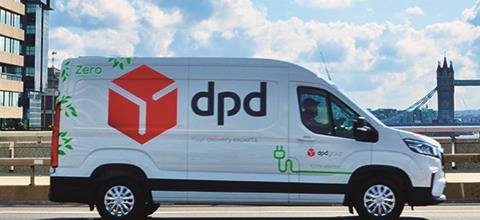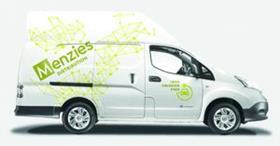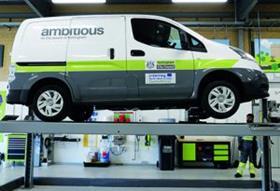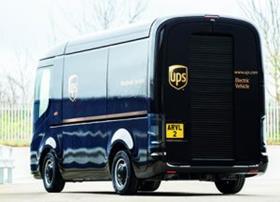
DPD UK
DPD continues to blaze a trail on the all-electric fleet front, overcoming legislative barriers and issues around the supply of right-hand-drive vehicles, whilst also changing its urban operation to become emission-free.
DPD has launched its 25-25-25 Vision to decarbonise all deliveries in 25 UK cities by 2025. Through its pioneering approach the company now operates 700 electric vehicles – 10% of its total fleet vehicles – across 84 UK-wide depots, up from 139 in 2020. These are on track to deliver 20 million parcels by the end of 2021.
Last year also saw DPD launch Project Breathe, which involves the installation of the latest laser sensors on its vehicles to measure and record air quality in London. This will be rolled out this year to five more cities to help identify air pollution hotspots, including Birmingham, Cardiff and Manchester.
The judges said: “A fantastic holistic view of sustainable last-mile deliveries and a very strong entry.”

Menzies
Menzies has a mantra of “tomorrow delivered today”, with its sustainable business model shaping the logistics supply chain, now and for generations to come.
Sustainability is a core pillar of the business. Menzies introduced a dedicated electric fleet ahead of regulatory deadlines in towns, cities and even rural areas, including the Scottish Highlands and Islands. The business travels 260,000 emission-free miles per year through its EVs, delivering more than 10 million items. Vehicle liveries are biodegradable and PVC-free, while use of aerodynamic bodywork and air deflectors has reduced vehicle drag by 30% and boosted fuel efficiency by 10% to 15%. Menzies has also established a wide commercial charging infrastructure across the UK and, following extensive trials, has developed an energy efficient vehicle-to-grid process, allowing it to charge at off-peak times and return spare charge to the grid when energy demand is highest.
The judges said: “Robust, broad approach to sustainability across the business and interesting work taking place around vehicle-to-grid technology.”

Nottingham City Council
Nottingham City Council (NCC) has committed to a zero-tailpipe emission fleet by 2028. The local authority takes a pioneering approach to van electrification through its wider fleet strategy and has grown its EV fleet from two vehicles in 2016 to 196 today. Of this EV fleet, 130 are vans which collectively have saved more than 190 tonnes of CO2 per year.
NCC’s CleanMobilEnergy Project will connect 40 of the council’s electric vans to a network of solar PV panels and the national grid using an energy optimisation platform. By predicting periods of good weather and low electricity pricing it will charge vehicles at the most cost-effective times, whilst also enabling the vans to act as short-term energy storage units by discharging energy back to the grid during periods of high demand. In 2020, NCC also launched the UK’s first ULEV exclusive workshop to be run by a local authority. NCC has created an ultra-low-emission vehicle procurement framework which is available for other local authorities to use.
The judges said: “NCC demonstrated a very strong leadership approach to adopting new technology and supporting wider change for local businesses and other councils.”

UPS
In today’s logistics industry, delivering goods is no longer enough – UPS has set itself a mission to deliver a cleaner future, too. It used its Smart E-commerce Report to gain direct insight into the expectations of consumers in 2021, with more than half wanting sustainable deliveries.
UPS is achieving its green ambition to date and in 2020 reached its goal to ensure 25% of all global vehicles purchased were alternative fuel or advanced technology. By 2025, it plans for this figure to reach 40% of total ground fuels. The company has invested in tech firm Arrival to advance its progress in electric vehicles, and also worked with UK manufacturer Tevva on its range-extended hybrid technology, with vehicles operating in Birmingham and Southampton. UPS has continued to advance the testing of smart charging technology during 2020 at its Camden depot, with use of an AI-powered GridShare platform.
The judges said: “UPS is using its huge muscle to help bring new technology to the wider market, Very impressive entry.”











